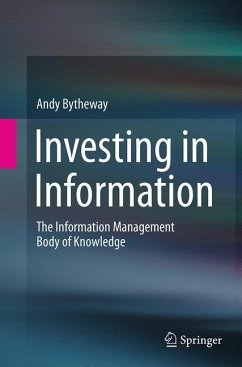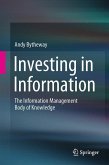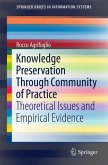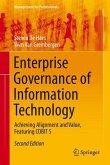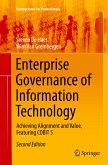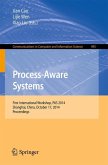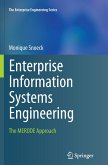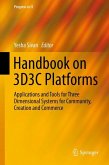This book gathers together, in a new way, established and contemporary thinking about how to get the best out of information technology and information systems investments. Working managers who are beset by the complexities of information management in the age of Big Data and the Social Web, and students who are trying to make sense of information management in a chaotic world that is more and more driven by the Internet, will all benefit from this new treatment of a long-standing and problematic domain. Importantly, the book reveals and clarifies the dependencies that exist between the inner world of information technology and the outer world of people and organisations at work.
The book differs from other books in its reflective approach. It avoids lengthy, descriptive, and prescriptive dogma. Rather, it provides tools for thinking about information management and it identifies strategic and tactical options at six levels: from the simple consideration of informationtechnology and information systems, right through to issues of organisational performance and business strategy. At the heart of the matter are two critical and tightly connected issues: the ways that we conceive and manage an organisation's processes, and the ways that we conceive and manage the information that an organisation needs to sustain those processes. The six-level framework that achieves this clarity is the "Information Management Body of Knowledge" (familiarly known as the "IMBOK"). This easy-to-understand and easy-to-remember framework has been found to be extremely useful in business, in government, in civil society and in education. Throughout the book, selected research papers are identified and summarised. There are also summary chapters from three different operational perspectives: performance and competency assessment using the IMBOK, undertaking research into related issues, and a review of parallel expert thinking.
This book standsas a reference point and resource for all those who need to straddle the disparate worlds of "information technology" and "business". It provides firm pedagogical foundations for courses dealing with business management in the information age, and it provides a sound reference framework for researchers who need to position research projects related to information technology and information systems in a wider context. For busy managers, who simply wish to identify, understand and successfully manage information technology-related opportunities, it provides an ideal arrangement of ideas and tools that will help them.
The book differs from other books in its reflective approach. It avoids lengthy, descriptive, and prescriptive dogma. Rather, it provides tools for thinking about information management and it identifies strategic and tactical options at six levels: from the simple consideration of informationtechnology and information systems, right through to issues of organisational performance and business strategy. At the heart of the matter are two critical and tightly connected issues: the ways that we conceive and manage an organisation's processes, and the ways that we conceive and manage the information that an organisation needs to sustain those processes. The six-level framework that achieves this clarity is the "Information Management Body of Knowledge" (familiarly known as the "IMBOK"). This easy-to-understand and easy-to-remember framework has been found to be extremely useful in business, in government, in civil society and in education. Throughout the book, selected research papers are identified and summarised. There are also summary chapters from three different operational perspectives: performance and competency assessment using the IMBOK, undertaking research into related issues, and a review of parallel expert thinking.
This book standsas a reference point and resource for all those who need to straddle the disparate worlds of "information technology" and "business". It provides firm pedagogical foundations for courses dealing with business management in the information age, and it provides a sound reference framework for researchers who need to position research projects related to information technology and information systems in a wider context. For busy managers, who simply wish to identify, understand and successfully manage information technology-related opportunities, it provides an ideal arrangement of ideas and tools that will help them.

